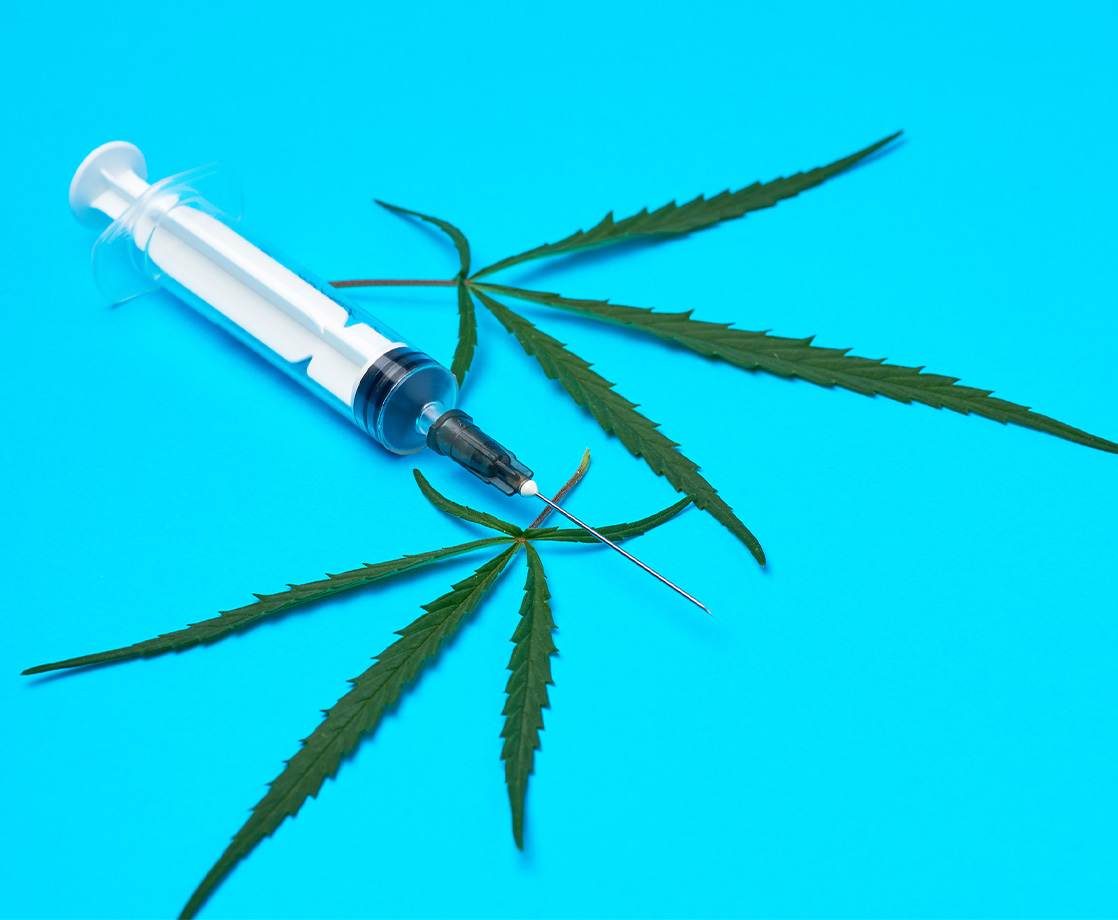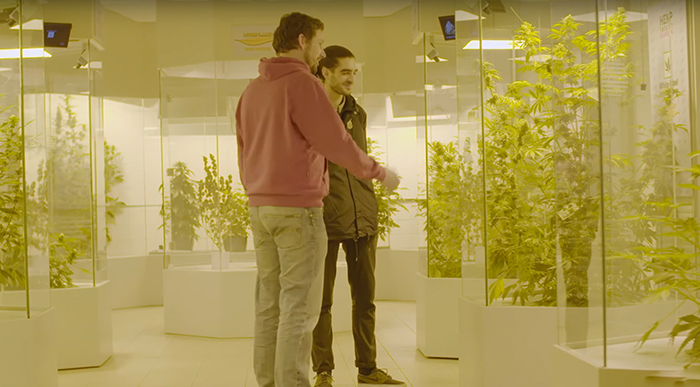A new study found that injecting pure THC triggered schizophrenia-like behaviors in subjects. But, uh, does anyone actually consume weed this way?
The study, conducted by schizophrenia researchers at the Veterans Affairs Healthcare System in Connecticut, and recently published in Neuropsychopharmacology, involved shooting up 22 healthy individuals with 2.5mg THC, 5mg THC, or a placebo (0mg THC). The subjects had previously been “exposed” to cannabis, but none had been diagnosed with cannabis use disorder.
After three separate days of mainlining pure THC, the subjects reported experiencing schizophrenia-like symptoms, increased anxiety, altered perceptions, euphoria, and a host of memory and speech issues. Their blood also showed increased levels of cortisol, the primary stress hormone. Not surprisingly, the researchers concluded that THC produces psychotic behaviors, and more studies are needed to see how cannabinoid receptors may contribute to psychotic disorders.
Usually when we see anything about injecting THC or “marijuanas,” it comes from satirical social media accounts that claim shooting up weed can cause everything from suddenly turning someone gay to spontaneous death (again, these are memes). But intravenous administration of THC is a standard (though not terribly common) practice in cannabis studies, since it gives researchers precise control over dosing. The only problem with this study and others like it is that no one actually injects pure THC. There’s a reason why most consumers prefer to smoke or vape cannabis, after all.
When someone smokes, let’s say, a one-gram joint rolled with weed containing 25 percent THC, that joint contains, roughly, 250mg of THCA, the form of THC that doesn’t get anyone high. Heat converts some THCA into THC — the stuff that gets people lit — but only some THCA turns into the psychoactive form. The average time that heat is applied to the joint isn’t long enough to convert all of the THCA to THC. Furthermore, a bunch of converted THC gets lost in the smoke that wafts from the joint, and even more THC gets stuck in the ash.
So, by the end of it, even if just one person smoked that entire 1-gram joint to the face, they’re only getting a small fraction of that potential 250mg THC, not to mention a cornucopia of other compounds such as other cannabinoids, terpenes, flavonoids, and polyphenols — which all may interact with our brain’s cannabinoid receptors, dulling the negative effects of THC.
In other words, shooting someone up with 2.5mg or 5mg pure THC is kind of a lot, especially for non-stoners, which this study focused on.
In addition to there being next-to-no people who shoot up THC distillate or diamonds on a regular basis, no one shoots up actual weed, either. Back in the ‘70s and ‘80s, some idiots tried that, and they developed what’s called “intravenously injected marijuana disorder.” Basically, folks would boil weed buds into a “broth,” pull that filtered broth up into a syringe, then inject it. Rather than getting lit, they got sick AF instead, which included bouts of vomiting, intense muscle pains, and serious heart problems.
Here’s the thing about IV marijuana disorder, too: There are practically no new case studies on it after 1986, suggesting that only a handful of people did it back in the day. Why? Obviously, it sucks, and it’s potentially life-threatening. Which is why, today and in the past, folks have stuck to puffing their pot.
Does this mean that everything about the VA study is bogus? Not entirely. We know that the endocannabinoid system plays a role in some mental disorders, and cannabis use can aggravate some psychotic symptoms in people particularly prone to them. However, many cannabis patients consume weed to alleviate symptoms of their personality or mood disorders, too, so the issue isn’t black-and-white, nor is it clear-cut.
Oh, and in case if you’re wondering if you can snort weed, yeah, technically, that’s possible. But you’ll end up blowing pot-snot all day and never catching a buzz.











